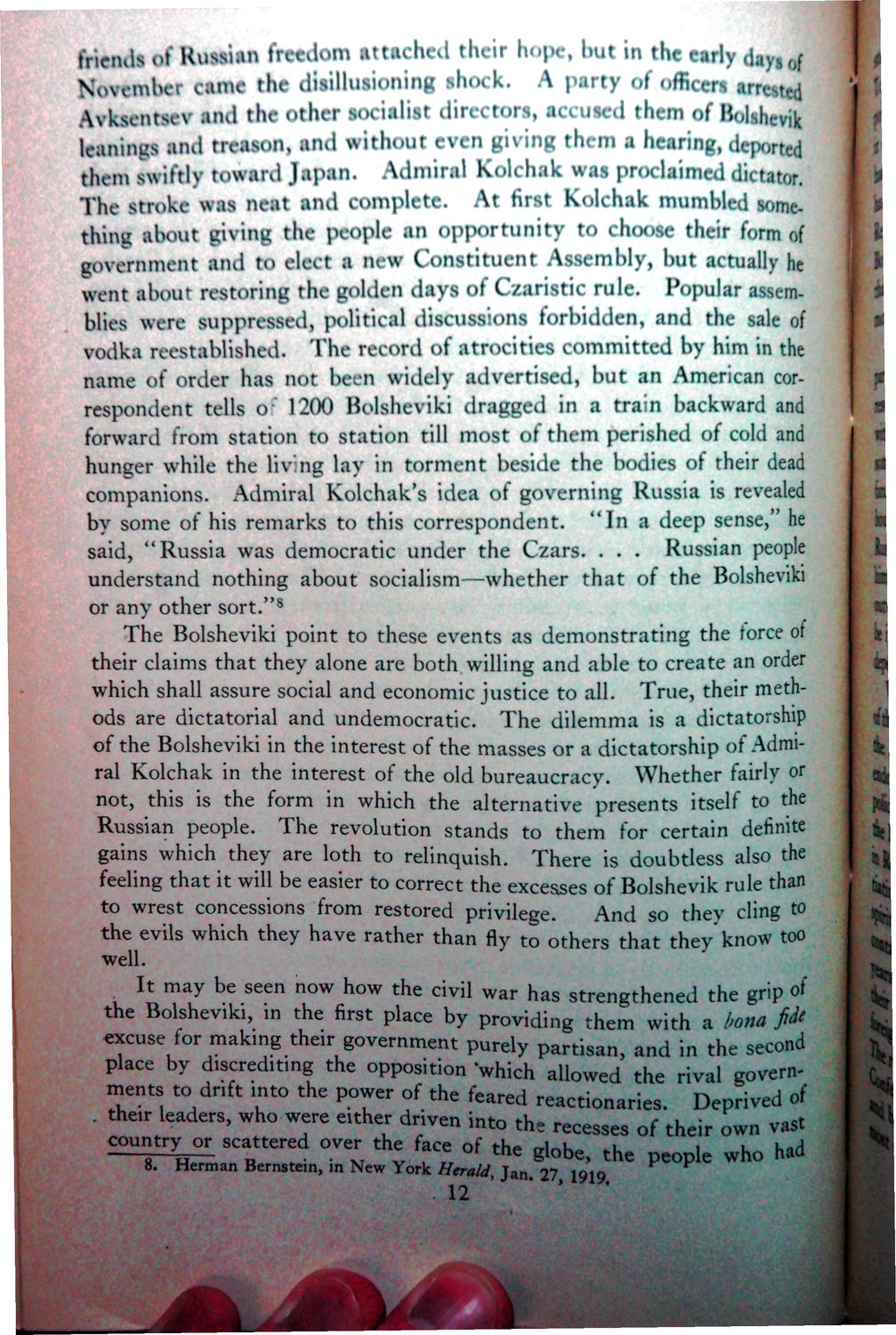| |
| |
Caption: War Publications - WWI Compilation 1923 - Article 22
This is a reduced-resolution page image for fast online browsing.

EXTRACTED TEXT FROM PAGE:
friends of Russian freedom attached their hope, but in the early days of November came the disillusioning shock. A party of officers arrested Avksciusev stul the other socialist directors, accused them of Bolshevik leanings and treason, and without even giving them a hearing, deported them swiftly toward Japan. Admiral Kolchak was proclaimed dictator. The stroke was neat and complete. At first Kolchak mumbled something about giving the people an opportunity to choose their form of government and to elect a new Constituent Assembly, but actually he went about restoring the golden days of Czaristic rule. Popular assemblies wore suppressed, political discussions forbidden, and the sale of vodka reestablished. The record of atrocities committed by him in the name of order has not k v n widely advertised, but an American correspondent tells of 1200 Bolsheviki dragged in a train backward and forward from station to station till most of them perished of cold and hunger while the living lay in torment beside the bodies of their dead companions. Admiral Kolchak's idea of governing Russia is revealed by some of his remarks to this correspondent. " I n a deep sense," he said, "Russia was democratic under the Czars. . . . Russian people understand nothing about socialism—whether that of the Bolsheviki 8 or any other sort." The Bolsheviki point to these events as demonstrating the torce of their claims that they alone are both willing and able to create an order which shall assure social and economic justice to all. True, their methods are dictatorial and undemocratic. The dilemma is a dictatorship of the Bolsheviki in the interest of the masses or a dictatorship of Admiral Kolchak in the interest of the old bureaucracy. Whether fairly or not, this is the form in which the alternative presents itself to the Russian people. The revolution stands to them for certain definite gains which they are loth to relinquish. There is doubtless also the feeling that it will be easier to correct the excesses of Bolshevik rule than to wrest concessions from restored privilege. And so they cling to the evils which they have rather than fly to others that they know too well. . It may be seen now how the civil war has strengthened the grip oi the Bolshevik!, in the first place by providing them with a bona fide excuse for making their government purely partisan, and in the second place by discrediting the opposition which allowed the rival governments to drift into the power of the feared reactionaries. Deprived of . their leaders, who were either driven into the recesses of their own vast countryor scattered over the face of the globe, the people who had 8. Herman Bernstein, in New York Herald, Jan. 27 1919 . 12 '
| |